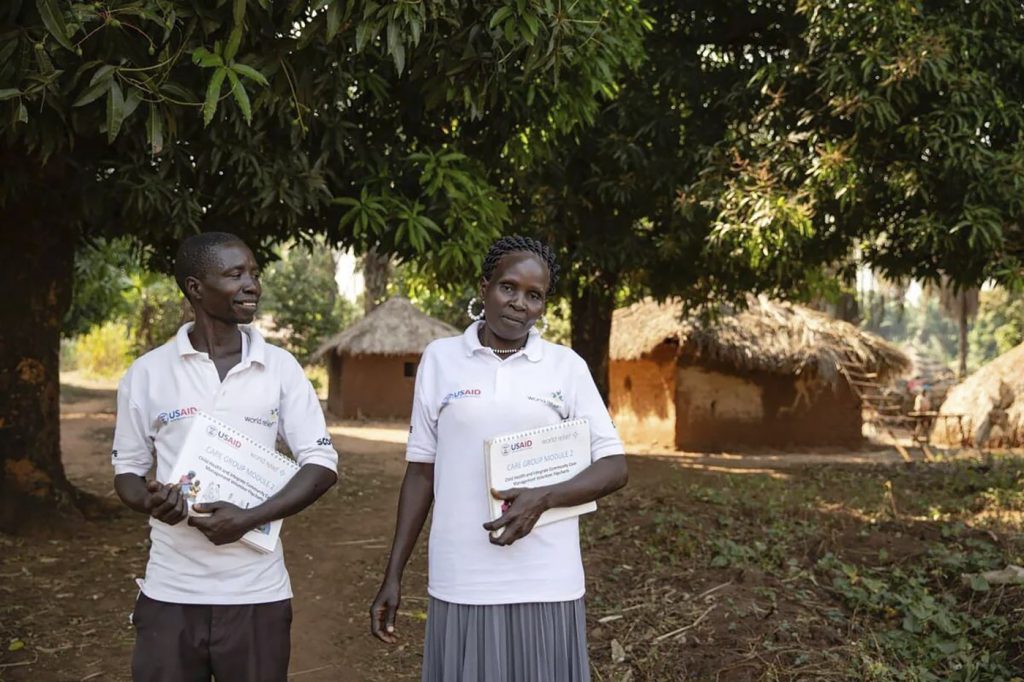In a warehouse in Haiti, nearly four metric tons of seeds remain undistributed, threatening the chances of providing emergency food as the planting season approaches. Meanwhile, in South Sudan, a critical program aimed at treating severely malnourished children under the age of 5 has come to a halt. Both initiatives are run by World Relief, an evangelical organization that has seen its operations falter due to the Trump administration's freeze on foreign aid and the sidelining of the U.S. Agency for International Development (USAID).
Faith-based organizations that collaborate with the U.S. government in delivering international aid are grappling with severe funding shortages and layoffs due to the ongoing USAID shutdown. Remaining staff are forced to make difficult decisions about which lifesaving programs can proceed without necessary government funding. “That’s what keeps me up at night,” admits Matthew Soerens, World Relief’s vice president of advocacy and policy.
Among the largest non-governmental recipients of USAID funds, two notable faith-based organizations, Catholic Relief Services (CRS) and World Vision, provide extensive humanitarian support globally, addressing needs for food, water, and healthcare in conflict zones. CRS, founded by U.S. Catholic bishops in 1943, is expected to undergo drastic workforce reductions this year, potentially as much as 50%, because of significant cuts in U.S. foreign assistance. The organization relies heavily on USAID, which funded nearly half of its $1.2 billion budget in 2023.
In a dire warning, Caritas, the Vatican’s global charity arm, stated that millions could perish due to what it calls the “ruthless” decision by the U.S. to cease USAID funding. The consequences would extend to hundreds of millions more being subjected to “dehumanizing poverty.” While the State Department has provided select waivers to allow certain organizations to continue lifesaving work, many say that federal funding has not yet materialized, causing frustration and confusion regarding the waiver process.
World Relief has been granted a waiver to maintain its operations in Sudan, a country ravaged by civil war, but remains in limbo waiting for government payments for ongoing and completed projects. Despite the organization raising $4.5 million in two weeks through private donations and church support, it still faces a $3.5 million funding gap for immediate needs, having already furloughed employees.
Franklin Graham, a notable evangelical leader and head of Samaritan's Purse, remarked that details regarding the waiver process remain unclear. Nevertheless, he emphasized that Samaritan's Purse has not stopped its emergency food and medical programs overseas, largely because government grants account for less than 5% of its projected funding for 2024. Graham appreciates the government's effort to reassess its funding strategies, trusting that these changes will be beneficial.
Meanwhile, a spokesperson for World Vision articulated that the organization is actively working on obtaining waivers to resume critical humanitarian programs, asserting a continued commitment to serve vulnerable communities through its development and aid initiatives.
Reflecting on the past, Adam Phillips, who once led USAID's faith-based office under the Biden administration, noted that the previous Trump administration had made significant strides in collaborating with faith communities. However, he expressed confusion over the current administration's retreat from those commitments, labeling the situation as perplexing.
Supporters of USAID's initiatives argue that the organization's work not only alleviates global suffering but also promotes stability and serves as a form of soft power to counter influence from rivals like China and Russia. Conservatives have historically endorsed public-private partnerships that USAID fosters with religious organizations. Following the establishment of a new White House faith office, an executive order highlighted a desire for faith-based entities to compete for federal funding opportunities on equal footing.
Faith-based groups are hopeful that their humanitarian efforts will gain approval from the second Trump administration following a 90-day review. “At World Relief, we’re also pro-life Christians. We believe in the value of human life,” Soerens emphasized, urging the president and Secretary of State to expedite the process for essential humanitarian support.
Additionally, a USAID employee who works on crucial humanitarian assistance shared a sense of solidarity with faith-based organizations, citing a personal commitment to helping the vulnerable as a reflection of her own Christian faith.










